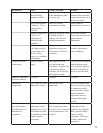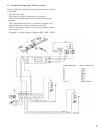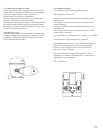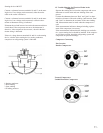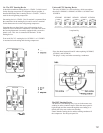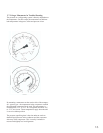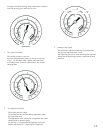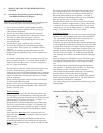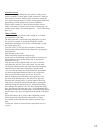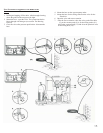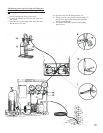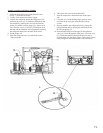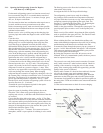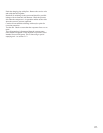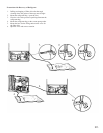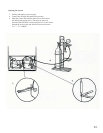
Actual Evacuation
After mounting of the filling hose, the system is ready for the
actual evacuation. Evacuate until a stable vacuum of 1 mbar has
been reached. Check for stability of the vacuum by closing the
valve for the vacuum pump (12). If the vacuum gauge needle falls
appreciably, possible leakage in the system is indicated.
When a stable vacuum of 1 mbar has been reached, evacute
further 5-10 minutes, close the valve for the vacuum gauge (10)
and the vacuum pump (12) and the spherical valve of the filling
hose (18).
Filling of R600a
Thereafter, test the microscales with a weight so as to check
the exactitude of the scales.
The refrigerant tank is connected to the filling hose (16) and
the valve (9) is opened. Evacuate the filling hose and the
manifold by opening the valve for the vacuum pump (12) and
the vacuum gauge (10).
Close the valves (12 and 10) after evacuation. Fill the hose
from the tank and the manifold with refrigerant by opening the
refrigerant tank.
Place the tank on the scales.
Make sure that the plastic hose hangs freely.
Set the scales to 0 and fill the system with the exact amount of
refrigerant that is given on the rating plate, by opening the
refrigerant valve (9).
If the pressure in the refrigerant tank is too low, so that the
refrigerant does not flow over in the system, you can either
warm up the refrigerant tank with warm water (the refrigerant
tank must not be subjected to temperatures which exceed
+50°C) or start the compressor at the thermostat. (Remember
to control around the thermostat if there is any refrigerant).
After having filled the system, the valve is closed (9).
Start the compressor and check the suction pressure. Close
the valve on the drilling tongs. Close the process pipe and
check the tube joining system. - Pressure equalize the refrig-
erant hose by closing the refrigerant tank and by opening the
manifold (9) and the vacuum pump (12. Dismount the filling
hose and open the spherical valve (18. Blow though the filling
hose with nitrogen, and close the valve (11) Dismount and blow
through he hose for the refrigerant tank (16) and the filling station.
ontrol if there is any trace of refrigerant at the mouth of the outlet
hose.
Search for leakages on all joints on the refrigerating system.
Check the pressure side when the compressor is in opera-
tion, and the suction side when the system is pressure equa-
lized.
Test the unit. Check to ensure that the evaporator frosts over
as usual.
16.



